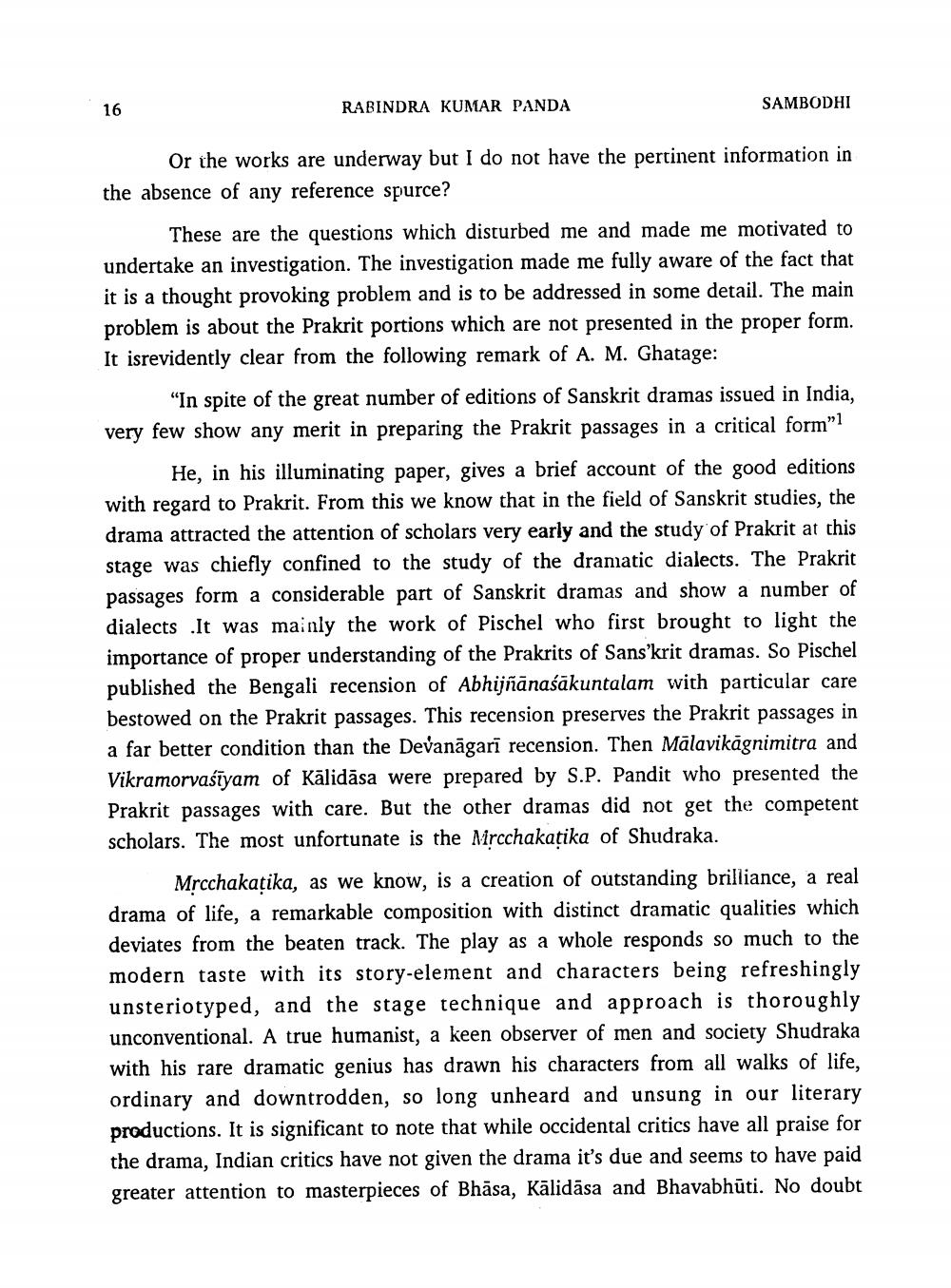________________
16
RABINDRA KUMAR PANDA
SAMBODHI
Or the works are underway but I do not have the pertinent information in the absence of any reference spurce?
These are the questions which disturbed me and made me motivated to undertake an investigation. The investigation made me fully aware of the fact that it is a thought provoking problem and is to be addressed in some detail. The main problem is about the Prakrit portions which are not presented in the proper form. It isrevidently clear from the following remark of A. M. Ghatage:
"In spite of the great number of editions of Sanskrit dramas issued in India, very few show any merit in preparing the Prakrit passages in a critical form”!
He, in his illuminating paper, gives a brief account of the good editions with regard to Prakrit. From this we know that in the field of Sanskrit studies, the drama attracted the attention of scholars very early and the study of Prakrit at this stage was chiefly confined to the study of the dramatic dialects. The Prakrit passages form a considerable part of Sanskrit dramas and show a number of dialects .It was mainly the work of Pischel who first brought to light the importance of proper understanding of the Prakrits of Sans’krit dramas. So Pischel published the Bengali recension of Abhijñānaśākuntalam with particular care bestowed on the Prakrit passages. This recension preserves the Prakrit passages in a far better condition than the Devanāgarī recension. Then Mälavikāgnimitra and Vikramorvašīyam of Kālidāsa were prepared by S.P. Pandit who presented the Prakrit passages with care. But the other dramas did not get the competent scholars. The most unfortunate is the Mrcchakatika of Shudraka.
Mrcchakațika, as we know, is a creation of outstanding brilliance, a real drama of life, a remarkable composition with distinct dramatic qualities which deviates from the beaten track. The play as a whole responds so much to the modern taste with its story-element and characters being refreshingly unsteriotyped, and the stage technique and approach is thoroughly unconventional. A true humanist, a keen observer of men and society Shudraka with his rare dramatic genius has drawn his characters from all walks of life, ordinary and downtrodden, so long unheard and unsung in our literary productions. It is significant to note that while occidental critics have all praise for the drama, Indian critics have not given the drama it's due and seems to have paid greater attention to masterpieces of Bhāsa, Kālidāsa and Bhavabhūti. No doubt




